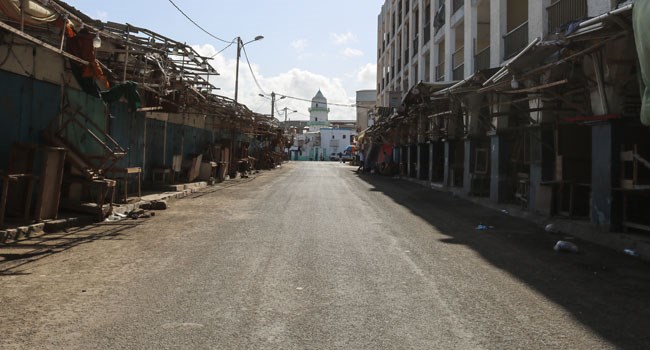
Saturday April 25, 2020

In this file photo, all shops are closed at a clothes market as the government banned commercial activities at essential markets to curb the spread of the COVID-19 coronavirus in Djibouti, on March 27,2020. AFP
ADDIS ABABA: Djibouti has sent thousands of Ethiopian migrants back to their country in recent weeks, and some returnees have tested positive for the coronavirus, officials said on Friday.
The UN’s International Organisation for Migration (IOM) estimates that so far in April "over 2,400 migrants" have been returned from Djibouti to Ethiopia, said Yvonne Ndege, an IOM spokeswoman.
"But with the pandemic still unfolding this is a developing situation and the numbers are changing," Ndege said. After being deposited at the border, the returnees are transported to quarantine facilities in the Ethiopian city of Dire Dawa or in the northern Afar region, said Zewdu Assefa from the Ethiopian Public Health Institute.At least four of the returnees in Dire Dawa have tested positive for COVID-19, Zewdu said. Ethiopian officials are worried the disease could spread further, as it is unclear whether Djibouti is doing any screening, Zewdu said.
"There is a concern for sure and we are all trying our best to manage that," he said. Ethiopians looking to migrate to Saudi Arabia in search of work often travel via Djibouti, where they board boats to cross the Red Sea.
Djibouti’s ambassador to Ethiopia, Mohamed Idriss Farah, said on Friday that many of the returnees were stranded in Djibouti because of pandemic-related travel restrictions and wanted to go back to Ethiopia.
But Zewdu said at least some of them were probably victims of "forced deporting". Djibouti, a strategically important country that hosts major US and French military bases, has reported nearly 1,000 cases of COVID-19. Its small population of around one million means it has the highest prevalence of the disease on the continent, according to the Africa Centres for Disease Control and Prevention.